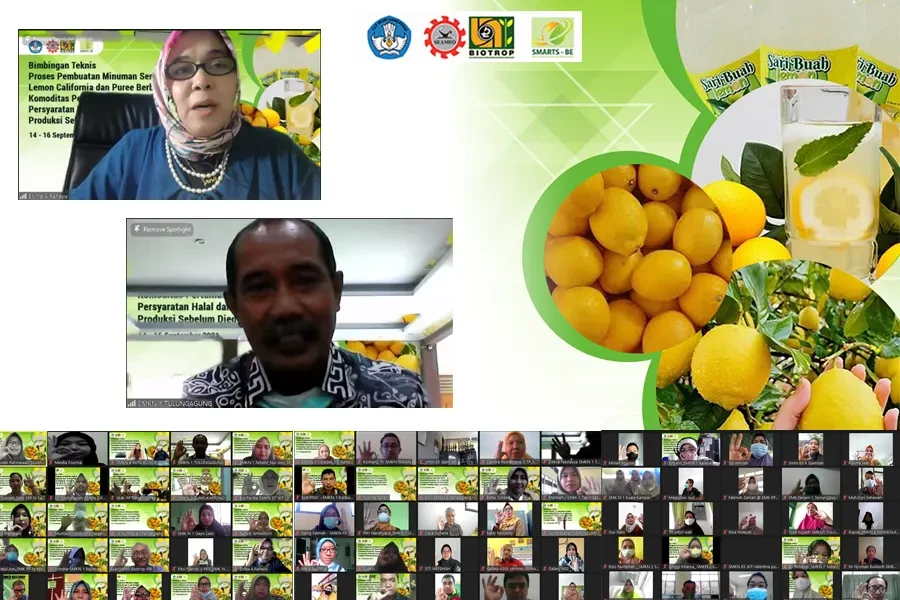The SMARTS-BE program of SEAMEO BIOTROP has been concentrating on increasing the added value of agricultural products through its partnership with agriculture vocational schools since 2018. In elaborating its partnership, the SMARTS-BE program held virtual technical guidance on 14-16 September 2021 with topics on the Production of California Lemon Powder Drink, the Puree Making of Several Agricultural Products, the Implementation of Good Handling Practices (GHP), the Halal Requirements, and the Required Distribution Permit for Marketing Agricultural Products. The technical guidance was aimed at 1. introducing the production methods of fruit powder drink by using a vacuum dryer based on GHP; 2. introducing the puree production methods of several agricultural products.
The Event Coordinator, Dr Supriyanto, explained that the materials provided in this technical guidance can be used in the teaching factory curriculum of the agriculture vocational schools for developing technologies in increasing the efficiency of processing agricultural products into marketable items.
Dr Zulhamsyah Imran, the Director of SEAMEO BIOTROP, opened the technical guidance. “This technical guidance is a form of SEAMEO BIOTROP’s commitment to provide mentoring in sharing scientific knowledge and building capacities of institutions and communities in conserving and managing tropical biology sustainably for the well-being of communities and the environment of Southeast Asia,” stated Dr Zulhamsyah.
The first resource person was Ms Elvina Agustin Rahayu, MP, who presented the methods of making puree from California lemon. Puree is the basic ingredient for making the powder drinks. “The puree and powder forms can efficiently maintain the nutritional values of agricultural products,” stated Ms Elvina. Mr Muhari, MPd, the second resource person, presented a simple and inexpensive vacuum evaporator for making puree from various agricultural products.
The technical guidance, joined by 145 participants from 35 agriculture vocational schools, provided knowledge on producing food products based on good handling practice (GHP) and halal requirements. Both requirements guarantee the hygiene, food safety, and halal status of the food products. The knowledge on good handling practice and halal requirements are important to be implemented by the students of agriculture vocational schools so that the students begin to properly produce and market processed agricultural products based on GHP and halal requirements with proper distribution permits. (sis)
 Monday, 20 September 2021 on 4:34pm
Monday, 20 September 2021 on 4:34pm